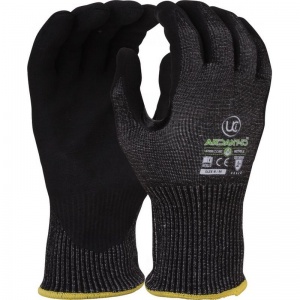MCR Greenknight CT1081NM Cut-Resistant Palm-Coated Recycled Polyester Gloves
Get a grip on wet, dry, and oily components in a range of industrial settings with the MCR Greenknight CT1081NM Cut-Resistant Palm-Coated Recycled Polyester Gloves. These fantastic gloves have a high, level D cut-resistance rating, and a nitrile-foam palm-coating that significantly improves grip function. These gloves feature a shell constructed from recycled polyester and spandex, with a breathable and lightweight design that ensures optimal comfort during use.
What's Included?
Which Glove Size Is the Right Choice For Me?
These gloves are available in a range of sizes suitable for adult users. To identify the best fit for you, start by measuring the length of your hand and the circumference of your palm at the knuckle, excluding the thumb (as seen below). Once you have these measurements, you can compare them to the sizing table to discover the right size for you.
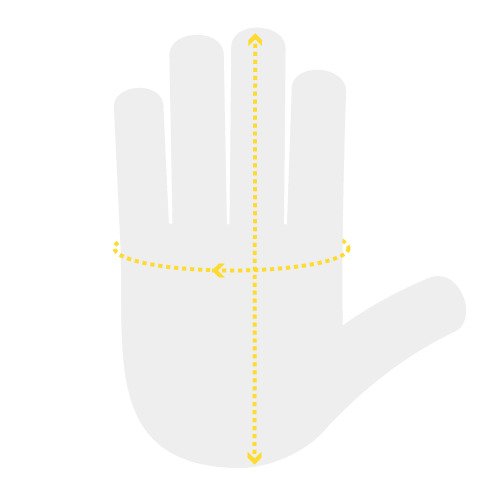
| Size | Palm Circumference | Hand Length |
| Size 7 | 178mm | 171mm |
| Size 8 | 203mm | 182mm |
| Size 9 | 229mm | 192mm |
| Size 10 | 254mm | 204mm |
| Size 11 | 279mm | 215mm |
How Can these Palm-Coated Gloves Protect My Hands?
The Greenknight gloves offer versatile protection suitable for a range of industrial environments. Protective features of these gloves include:
- High level of cut-resistance for protection against wounds and lacerations when working with sharp materials
- Dextrous and lightweight design ensures ease-of-movement with minimal hand fatigue
- Touchscreen-compatible fingertips mean you won't have to take the gloves off to use a smartphone or tablet
- Palm-coat offers enhanced grip on wet, dry, and oily components
- Breathable glove design uses Sanitised technology to ensure optimal hygiene
- Abrasion-resistant design minimises injury risk when working with rough or coarse materials
Tested to European Standards
EN388 (Mechanical Risk)
| Hazard | Resistance Level |
| Abrasion Resistance | Level 4 |
| Cut Resistance | N/A |
| Tear Resistance | Level 4 |
| Puncture Resistance | Level 2 |
| ISO Cut Resistance | Level D |
Who Can Use the Cut-Resistant Gloves?
These gloves are suitable for a varied range of industries and job tasks, with suitable applications including:
- Aerospace
- Automotive
- Offshore Oil, Oil Refining, and Oil Handling
- Building and Construction
- Railway Maintenance
- Utilities
- Metal Fabrication
- Steel Industries
- Assembly
- General Handling
- Blade / Sharp Material Handling
- Shipping
- Warehousing
Key Features and Benefits
- Pair of cut-resistant green and black gloves
- Perfect for use in a wide range of industrial fields
- 15-gauge shell design retains dexterity needed for precise work
- Suitable for work with sharp, oily, or wet materials and components
- Constructed from a 21.6% recycled polyester and spandex blend
- Excellent level of cut-resistance for secure handling of sharp materials and components
- Abrasion-resistant design protects your hands when working with rough or coarse materials
- Lightweight and form-fitting design ensures comfortable usage
- Nitrile-foam palm coat significantly improves glove grip on wet, dry, and oily components
- Advanced filament fibre in shell used for cut level D protection
- Doesn't use harsh fibres to help prevent irritation and fibre breakdown
- Breathable design helps to minimise sweat build-up
- Sanitised technology used to prevent odours and keep your hands feeling fresh
- Designed with touch-screen compatible fingertips for optimal convenience
- Reinforced design ensures durability
Made Using Recycled Polyester
These gloves have been designed using 21.6% RCS certified post-consumer polyester.
Materials
- Shell: Recycled Polyester and Spandex
- Coat: Nitrile Micro-Foam (Palm Only)
Additional Documentation
Delivery
This item will be dispatched by Royal Mail, DPD courier or UPS courier.
The estimated delivery time for this item is usually 1-3 working days when ordered before 14:00, Monday to Friday (excluding Bank Holidays).
Orders that are placed before 14:00 on a working day are usually dispatched on the same day; for orders placed outside this timeframe, they are normally dispatched the next working day.
UK Delivery Charges
Certain orders delivered to the UK are subject to a delivery charge; refer to the table below for more information. Please note that all values are listed exclusive of VAT.
| Order Value | UK Delivery Charge |
|---|
| Up to £39.99 | £4.95 |
| £40.00 and over | FREE |
Please note: orders to NON-mainland UK and the Scottish highlands may be subject to an additional delivery charge, dependent on the size and value of the order.
What is EN 388?
You might have noticed that this product adheres to EN standard EN 388. EN standards ensure that the product you are buying meets the safety standards of the European Committee for Standardization (CEN), the highest standards organisation recognised by and working on behalf of the European Union. To pass any EN standard, a PPE product must undergo some of the most rigorous safety tests around.
There are many EN standards that our gloves adhere to. However, the EN standard that we’re concerned about here is EN 388. EN 388 stands for Mechanical Resistance, and informs you of your gloves' resistance to abrasion, cuts, tears and punctures.
How Do I Read the EN 388 Score?
Simply speaking, the higher the score that this product achieves, the better the product will be at resisting that hazard. Products will score between Level 0 and Level 4 for abrasion, tears and punctures, and if they weren’t tested for that hazard you will see N/A written instead of a number.
Cuts are a little different and, with the EN 388 standard rewritten in 2016, it means that gloves will either be tested to cut resistance or ISO cut resistance (sometimes called TDM cut resistance). Gloves tested to cut resistance will score between Level 0 and Level 5, and gloves tested to ISO cut resistance will achieve a score between Level A and Level F with the higher letter offering better cut protection.
Where Can I Find Out More?
This is just a brief overview of EN standard EN 388 so you know where you are standing. For further information, you can see the Introductory EN 388 Blog in our Knowledge Centre.


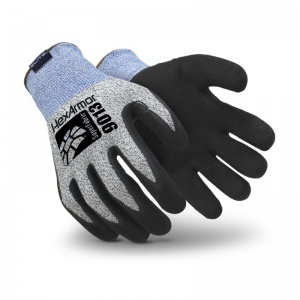
.jpg)
.jpg)
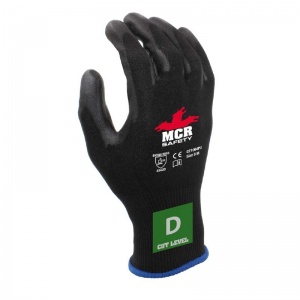
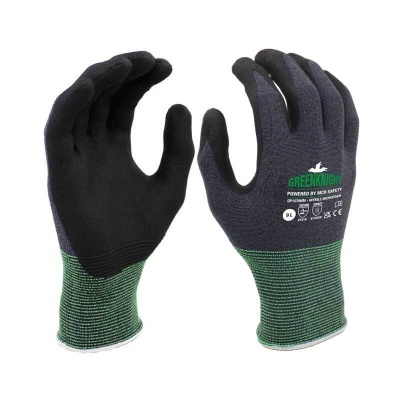
.jpg)
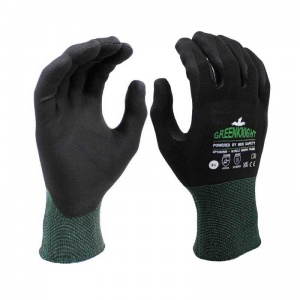
.jpg)
.jpg)
